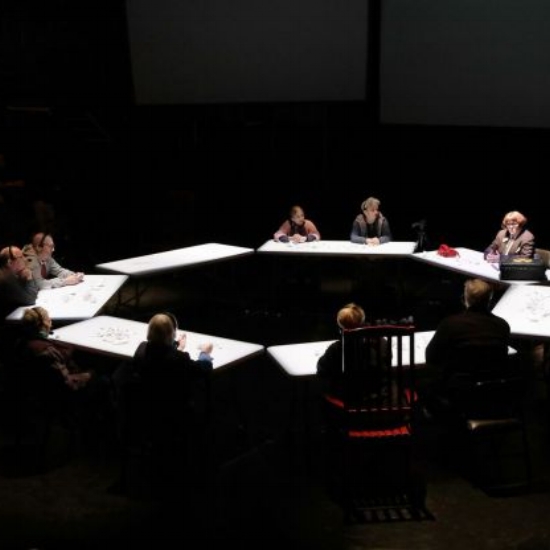Public Address Systems
Public Address Systems is an open-source series of projects created and coordinated by artist and researcher Lois Weaver. Each of these projects is at its core an engagement with the public.
The current Public Address Systems are:
In a period when the nature of ‘the public’ is increasingly contested, Public Address Systems create spaces that are hospitable and open so that alternatives can be modeled and critical questions staged. They have engaged artists, activists, academics, advocates and general audiences on a wide range of subjects including women in prison, the arts and human rights, and the nature of family.
What do we share and what do we owe each other?
How are ‘we’ counted and who is included?
How it is possible to think, and feel, publicly?
The project hinges on the principles of care, communitas, and access. Through these projects, we can take comfort in our gathering, and feel the power drawn from the knowledge that the experience is being replicated in different places worldwide. Public Address Systems is open-source, unfixed, and constantly evolving as it encounters new questions, contexts, and communities. We invite you to dive in and use these models in your communities - whether you follow them exactly, or muddy them up a bit for your own purposes.
Public Address Systems is framed through three different modes of inquiry, performance, place and the everyday, with each focusing in detail on a range of topics and contexts. These frameworks provide access to deeper political, cultural, and technological questions of the 'public', and seek to empower individuals and their communities.
Weaver’s performance practice directly addresses political issues, explores persona and identity, and becomes a methodology for working with the public collaboratively and in dialogue. This is explored specifically in three ways: Performing the Issue, Performing the Persona, and Performing as Methodology
Institutional spaces are appropriated for complex interventions around gender, sexuality, human rights and other crucial flash points for public activism. New public spaces are enacted for political action, and to question ingrained institutional boundaries.
Everyday practices – often associated with the private, the domestic and the marginal – are used to create new forms of public sociality. The space between the kitchen table and the porch swing becomes politically charged and of public consequence.
View the Public Address Systems archive here.






